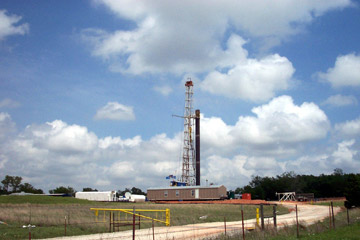
As natural gas development expands nationwide, policymakers, communities and public health experts are increasingly turning to health impact assessments (HIA) as a means of predicting the effects of drilling on local communities, according to a new study from the Colorado School of Public Health.
The report, published last week in the American Journal of Public Health, highlights lessons learned when scientists from the school were hired to assess the possible health impacts of fracking in a small western Colorado town.
“Health impact assessments can be a useful public health tool to determine the possible health effects of natural gas development on the local level,” said the study’s lead author Roxana Zulauf Witter, MD, MPH, at the Colorado School of Public Health. “In fact, our study is now being looked at as a model nationwide.”
In 2009, the Colorado School of Public Health was contracted by Garfield County to conduct a health impact assessment (HIA) of 200 proposed natural gas wells in the community of Battlement Mesa.
The team found that the natural gas project could contribute to health effects such as headaches, upper respiratory illness, nausea and nosebleeds and a possible small increase in lifetime cancer risks as a result of air emissions.
The project would also increase safety risks and mental health effects due to traffic and community changes associated with the industrial activity.
According to the study, the HIA offers a roadmap for other communities and industry to follow in determining the health impacts of gas drilling. It also develops recommendations to reduce those impacts.
“We believe we accomplished the important objective of elevating public health into many levels of natural gas policy discussion,” the study said. “The Battlement Mesa HIA provides substantial and valuable guidance for local decision makers to protect public health.”
At the same time, the industry can use HIA findings to identify and eliminate health issues before they become problems.
“The whole goal is to provide recommendations to reduce impacts before you start,” Witter said. “The assessment is a means to an end. It’s a critical public health tool.”
